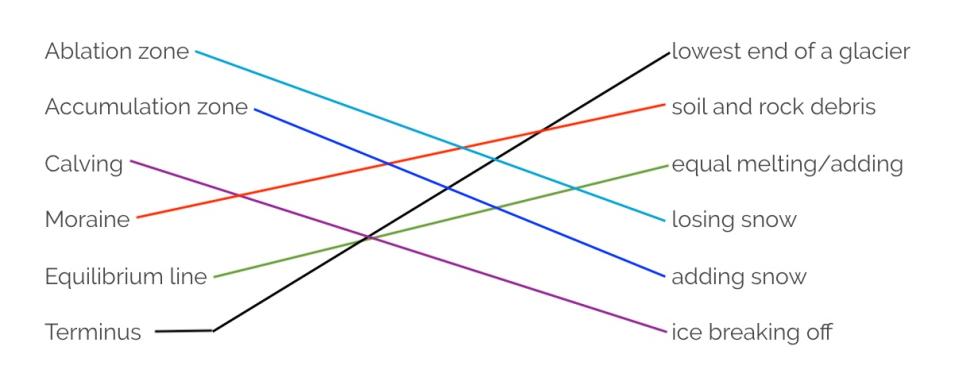Throughout the Glacier Power chapters, various exercises have been presented to encourage interactive learning. Below are the answers.
Where Have Glaciers Been?
Answers: Connect the Related Words
U-Shaped Valley
glacier
silt
fjords
V-Shaped Valley
river
Grand Canyon
Glacier Anatomy
Answers: Matching
accumulation zone – B
ablation zone – D
tributary – A
moraine – C
terminus – E
Strange Glacial Phenomena
Answers: Crossword Puzzle
| Down | Across |
|---|---|
| 1. Jokulhlaups | 1. moulins |
| 2. ice sizzle | 2. fossils |
| 3. ice worms |
What are Crevasses?
Answers: Word Scramble – Types of Crevasses
- bergschrund
- radial
- transverse
- longitudinal
Glacier Danger and Safety
Answers: Dress Your Friend for His/Her Hiking Adventure
The right items are:
crampons
jacket
rope
gloves
experienced traveler
boots
How Do Glaciers Form?
Answers: Circle the Facts
1. Firn: A, C, D
2. Snowflake(s): A, C, D
3. Snow on a glacier: B, C
How Do Glaciers Move?
Answers: Connect the Words with Definitions
